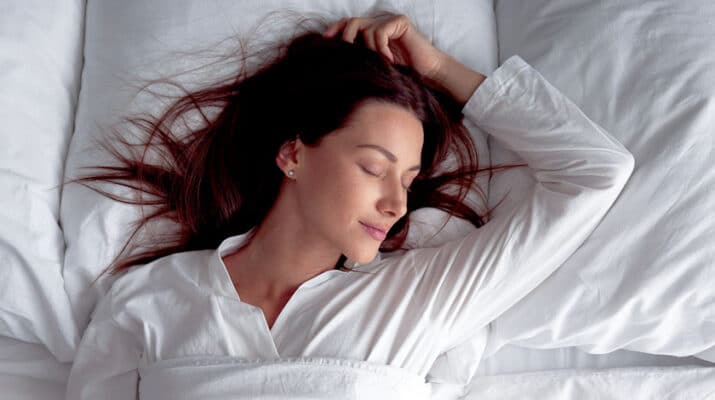Things you do before bed may sabotage your sleep
By Barbara Pierce

A good night’s sleep is enormously important for your health. In fact, it’s just as important as eating healthy and exercising.
Steven Levine, medical director, Mohawk Valley Health System Sleep Disorders Center in Utica, shared before-bed habits that could be keeping you from getting a good night’s sleep:
— “Smoking before bed will significantly impact your ability to fall asleep and to maintain good quality sleep,” said Levine.
You already know the countless reasons you should quit smoking, but here’s another to add to the list.
“Avoid tobacco before bed,” stressed Levine. “It is a stimulant.” Nicotine is a stimulant that may make it difficult to fall sleep or to sleep well.
“Avoid excessive caffeine,” added Levine. “It’s also a stimulant.”
Coffee, sodas, energy drinks and tea all affect your ability to sleep. Caffeine stays in your body for between six to eight hours after you drink it, so any caffeinated beverage you drink after 3-4 p.m. could negatively impact your sleep.
“Alcohol is a ‘knock out drug,” said Levine. It makes you fall asleep but it reduces the amount of melatonin in your body that can interrupt your sleep cycle. Melatonin is a hormone naturally produced by our body that floods your brain when you sleep and helps you sleep.
“Alcohol will help you fall asleep, but it’s not a good quality sleep,” he cautioned.
“Also, alcohol exacerbates sleep apnea,” Levine added. “It makes it considerably worse.”
It takes our body about one hour to digest one alcoholic beverage, so aim to enjoy your last sip by at least three hours before you go to bed.
“Another thing to avoid before bed is exposure to light,” said Levin. “This includes computers, smart phones, and TV. They serve as stimulants that decrease the melatonin in your brain.”
“Blue light, as on computers, is especially bad,” he added. Blue light shuts down your production of melatonin.
Once you are in bed, don’t watch TV or play with your phone or any electronic device. Instead read, stretch, or meditate. Do this for three weeks and you’ll begin falling asleep without TV or your device.
Aging component
As we age, we experience more problems with sleep, Levine added. Pain is often an issue that disturbs our sleep.
And frequent urination, especially for men, interferes with sleep. When you get up to urinate, don’t turn on the light, as this can make it difficult to fall back to sleep. Instead, use a nightlight.
Medication has benefits but many have a negative impact on sleep, he noted. Though you need the medication, the benefit has to outweigh the negative side effects.
Even some of the popular antidepressants, such as Prozac, Cymbalta, and Zoloft, can cause trouble falling asleep. The same goes for over-the-counter allergy meds, especially if the name includes the letter D. Like Zyrtec D and Allegra D. These all contain a decongestant which can be stimulating and keep you awake.
If you think your medication is impacting your sleep, talk with your doctor.
Others things to avoid before bedtime include exercising, eating a heavy meal, watching an exciting movie or the news, or having a serious discussion. These activities all rev up your energy and heart rate and may prevent you from falling asleep easily.
“One thing people often do incorrectly is go to bed just because it’s bedtime, but they’re not sleepy,” Levine said. “If you’re not sleepy, you won’t fall asleep. It’s difficult to make yourself fall asleep. Then you think you have a problem. Just delay going to bed until you’re sleepy.”
Having a consistent bedtime and wake time, even on the weekends, helps with good sleep. “Do maintain a regular wake up time,” he added. This will reinforce your circadian rhythm and you’ll be prompted to go to sleep at the same time every night.”
Circadian rhythms are part of the body’s internal clock, running in the background to carry out essential functions and processes. One of the most important circadian rhythms is the sleep-wake cycle.
Having a pre-bedtime routine is a good thing — a ritual that helps you wind down prior to sleep, he advised. Ideally, it should be one or more relaxing activities that help you prepare for sleep. In addition by allowing yourself to wind down at the end of the day, you also train your brain that it’s time to fall asleep.
Our brains respond well to routine.
And, putting off going to bed when you’re sleepy will throw your circadian rhythm out of whack. What’s worse, if you get too exhausted, it can make it even more difficult to get to sleep.

